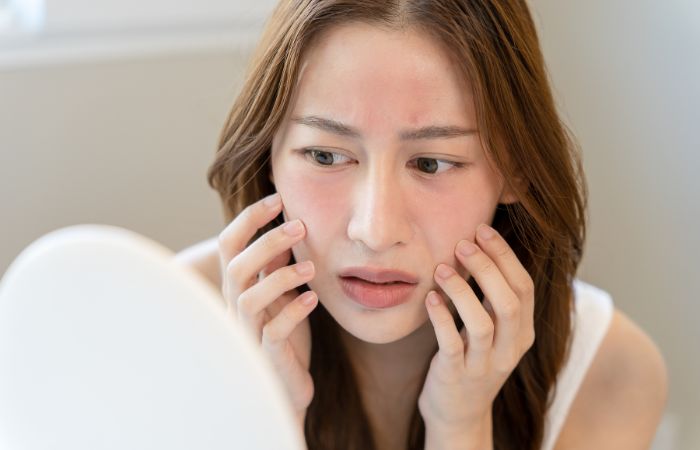
Allergies can affect anyone, from young children to adults, and they can develop at any time. If you suspect that you may be allergic to something, it’s important to recognize the symptoms early. Allergy symptoms can range from mild irritations to life-threatening reactions, so knowing what to look for is crucial. In cities like Mumbai, Pune, Nagpur, and Delhi, Diagnopein offers comprehensive allergy testing to help you identify the triggers of your allergic reactions.
Allergies are a condition where your immune system reacts to substances (allergens) that are usually harmless to most people. Common allergens include pollen, pet dander, certain foods, insect stings, and even medications. When someone with an allergy encounters an allergen, their immune system overreacts, releasing chemicals like histamine, which cause the symptoms associated with allergies.
If you experience frequent or severe symptoms that you suspect may be allergy-related, it’s essential to consult a healthcare provider. You may need an allergy test to determine the exact cause of your symptoms. A pathology test near me can be a great way to find local testing centers that can help diagnose your condition.
Allergy symptoms can vary widely depending on the type of allergen and the individual’s immune response. Here are some of the most common symptoms to watch for:
One of the most common signs of an allergy is frequent sneezing and a runny or stuffy nose. This is especially true for allergies caused by pollen (hay fever) or dust mites. If you find yourself constantly sneezing or blowing your nose, especially during certain seasons or after exposure to pets or dust, it could be an allergic reaction. Other symptoms related to this include itchy eyes and a sore throat.
Itchy, red, and watery eyes are another telltale symptom of allergies. This condition, called allergic conjunctivitis, is often triggered by pollen, pet dander, or dust. People with seasonal allergies may experience these symptoms during specific times of the year when pollen counts are high. If your eyes feel irritated or swollen after exposure to allergens, it may be time to consider getting an allergy test to confirm the cause.
Skin reactions are also common in people with allergies. If your skin becomes red, itchy, or develops hives (raised, red welts), it could be a sign of an allergic reaction. This can happen when you come into contact with certain foods, insect stings, or even certain fabrics or detergents. Eczema, a condition where the skin becomes inflamed and itchy, is another symptom often triggered by allergies. If you notice persistent skin issues, a visit to a pathology lab near me for an allergy test can help identify what you are allergic to.
Breathing problems are more severe symptoms of allergies. If you experience shortness of breath, wheezing, or tightness in the chest, it could be a sign of an allergic reaction, especially if you are exposed to allergens like pollen, dust mites, mold, or animal dander. In some cases, allergic reactions can lead to asthma-like symptoms. If you experience difficulty breathing or wheezing, seek medical attention immediately, as this could indicate a more severe allergic response.
Swelling of the lips, tongue, or throat is a serious symptom that should never be ignored. This condition, known as angioedema, can be a sign of a severe allergic reaction, such as anaphylaxis. If you notice swelling in these areas after eating a specific food, taking a medication, or being stung by an insect, you may be experiencing a severe allergic reaction that requires urgent medical care. In these situations, it’s essential to call emergency services immediately.

While the symptoms listed above are the most common, allergies can manifest in many different ways. Other symptoms to watch for include:
1] Fatigue: Allergies can cause fatigue, as your body’s immune system works overtime to fight allergens.
2] Headaches: Allergic reactions to pollen, dust, or other environmental triggers can cause headaches and sinus pressure.
3] Coughing: Chronic coughing, especially when associated with environmental allergens, can also be a sign of an allergy.
4] Digestive Issues: Some food allergies can cause nausea, vomiting, or diarrhea, typically within a few minutes to hours of consuming the allergen.
It's essential to pay attention to the frequency and severity of your symptoms. If they become persistent or worsen over time, it’s a good idea to schedule an allergy test to identify the specific allergens causing your symptoms.
Allergy tests are the best way to determine what is causing your symptoms. If you live in Mumbai, Pune, Nagpur, or Delhi, Diagnopein offers reliable allergy testing services that can help pinpoint specific allergens. The two main types of allergy tests are:
The skin prick test is one of the most common methods for testing allergies. During this test, a small amount of the allergen is applied to your skin, usually on the forearm or back. The skin is then pricked with a needle, and if you're allergic to the substance, you’ll develop a small raised bump at the test site. This test can detect allergies to pollen, pet dander, mold, and certain foods.
A blood test measures the level of specific antibodies (IgE) in your blood that your immune system produces in response to allergens. This type of test is often used for people who cannot undergo skin tests due to certain medical conditions or severe reactions. Blood tests can help identify allergies to foods, medications, or environmental triggers.
Regardless of the method, allergy tests are essential for understanding your triggers and creating a treatment plan. If you live in cities like Mumbai, Pune, Nagpur, or Delhi, Diagnopein provides expert allergy testing services with quick and accurate results.
Once you have identified your allergens, it’s important to take steps to minimize your exposure to them. Here are some general tips to help manage allergies:
Limit Exposure: Stay indoors when pollen counts are high, keep windows closed, and use air purifiers to reduce allergens in your home.
Medication: Antihistamines, decongestants, or corticosteroids may help alleviate symptoms. Always consult a doctor before starting any medication.
Allergen Immunotherapy: Allergy shots or sublingual tablets can help your immune system build tolerance to specific allergens over time.
Regular Cleaning: Keep your living spaces clean, vacuum regularly, and wash your bedding in hot water to remove dust mites and pet dander.